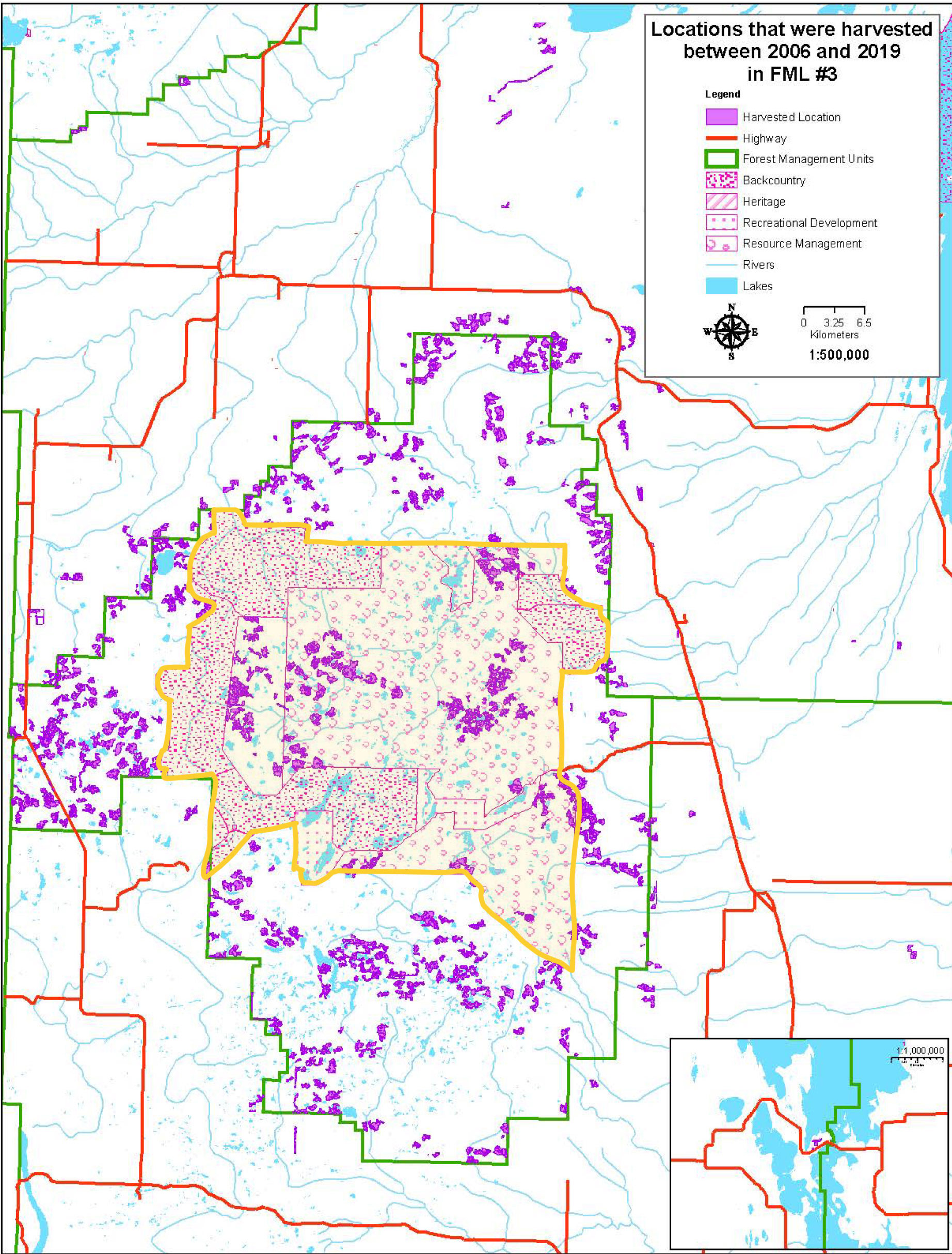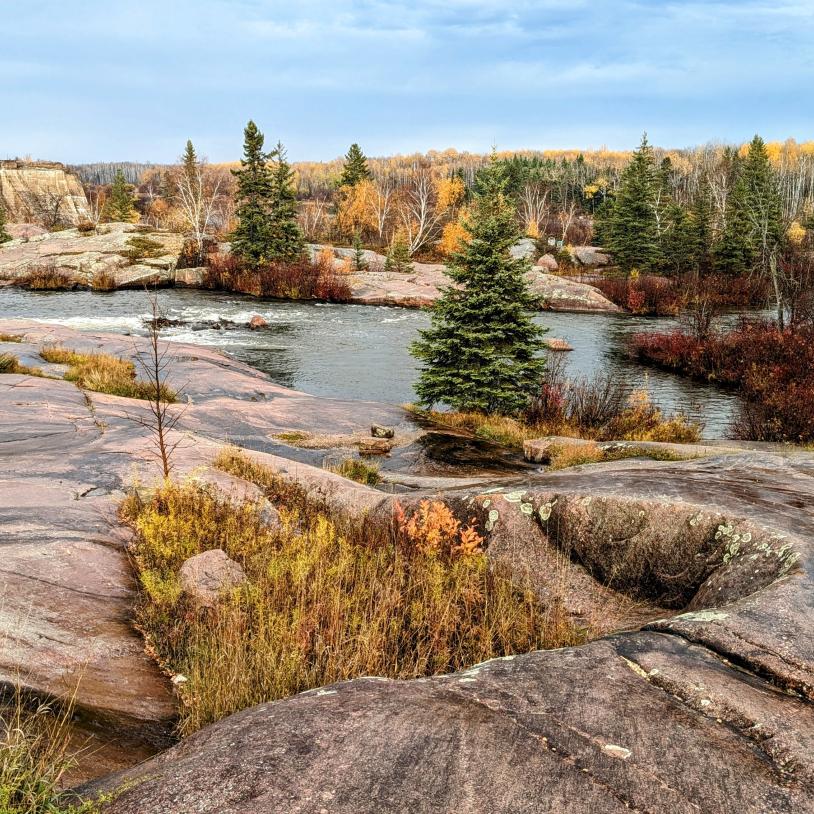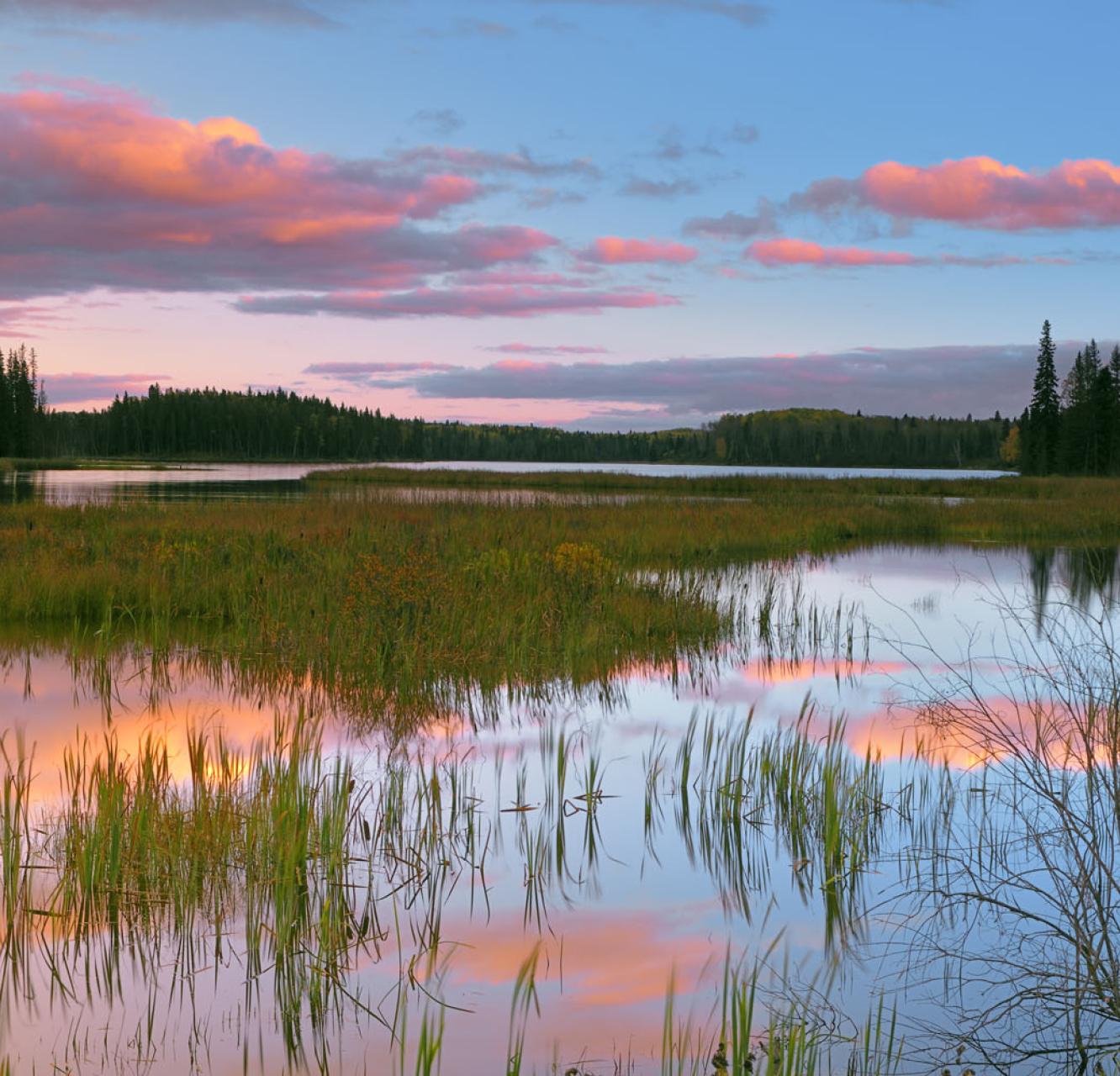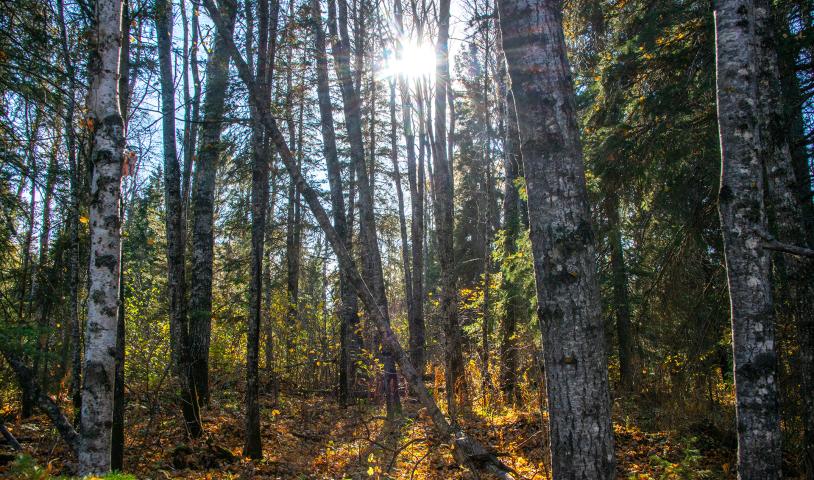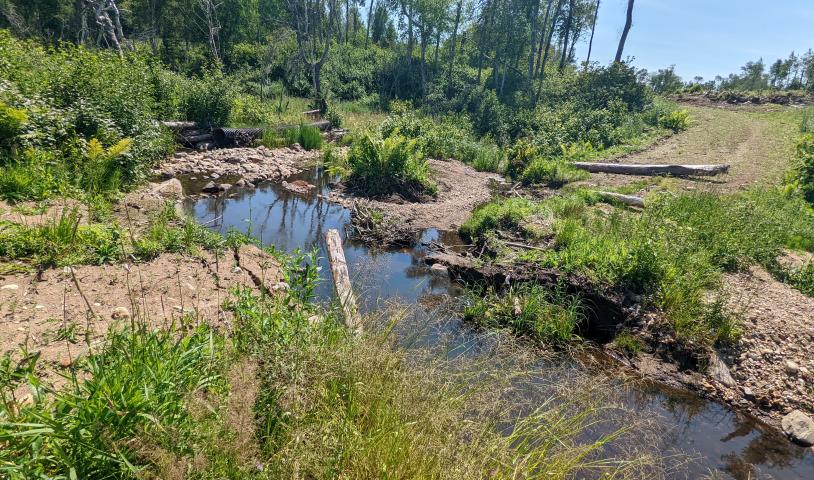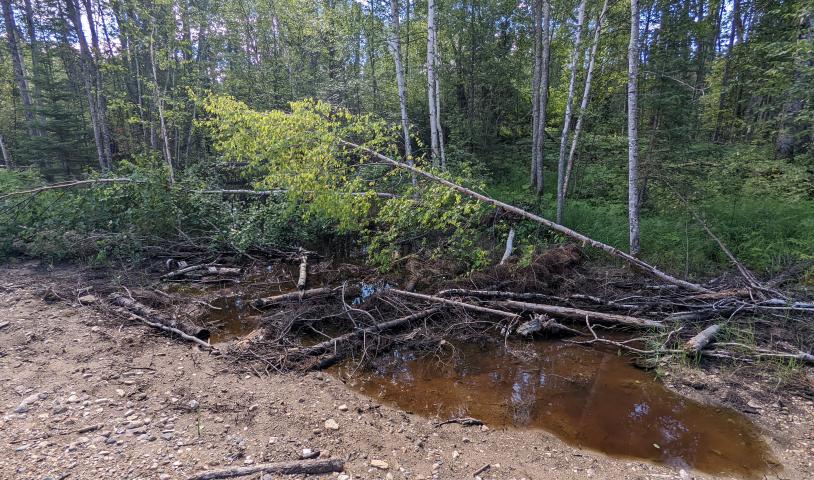Debunking Manitoba's Provincial Park Logging Response
Thursday, July 8, 2021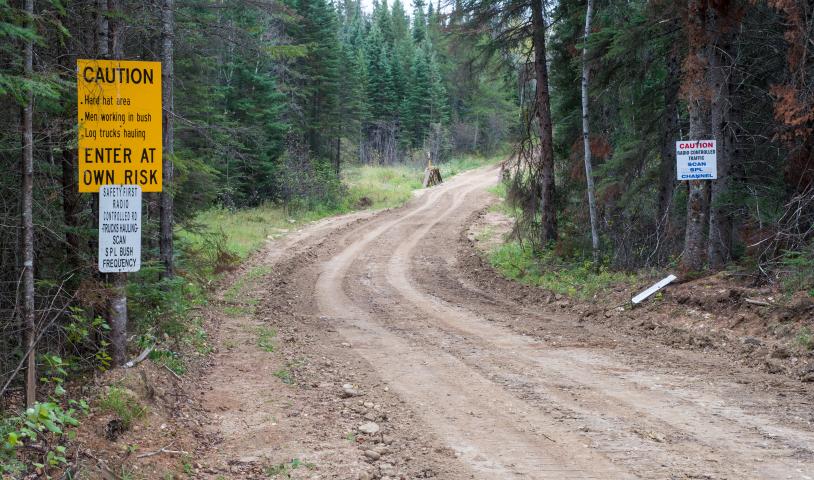
As many of our passionate supporters write heartfelt letters to defend Duck Mountain Provincial Park from logging, many received a response on behalf of Minister Agriculture and Resource Development Blaine Pedersen that was so full of ministerial misinformation and obvious omissions that we had to debunk it. Here are the facts to help you see through the spin!
If you would like to read the Minister's letter in full, you can do so here.
“Duck Mountain Provincial Park has been managed for multiple uses for nearly 60 years.”
The fact that this park originated with industrial activity allowed is no justification for not protecting it now as we have in every other park in Manitoba.
What do we know now that we didn’t know 60 years ago?
- There’s a climate crisis that requires us to preserve more forests and store carbon.
- There's a biodiversity crisis that requires us to set aside habitat for species.
- Protected areas are essential for our healthy air and water, and we need more of them, both in Manitoba and globally, three times as many as we have now.
“This management approach was strengthened in 1997 when the park boundaries were redefined to include 46,851 hectares of “backcountry” zone that was excluded from development.”
What they fail to mention: that’s only one-third of the park. A full 61 per cent of Duck Mountain Provincial Park is at risk of clearcut logging, and much of that forest has already been clearcut during Louisiana-Pacific’s 25 year tenure.
“...timber harvesting that takes place within Duck Mountain Provincial Park is not being undertaken by Louisiana Pacific.”
Duck Mountain Provincial Park is entirely within Louisiana-Pacific’s Forest Management Licence area, known as FML #3. Why is the government arguing that Louisiana-Pacific isn’t logging it? Logging in the Ducks is done under their logging management plan, which means they decide what gets logged and when.
Here is the map from LP’s 20-year logging management plan, showing logging in the 15 years since their last logging plan ended.
If you look at the map’s legend you’ll see a few labels:
- Backcountry
- Heritage
- Recreation Development
- Resource Management
Those categories aren’t general categories for land use in Manitoba, those are Land Use Categories (LUCs) designated under Manitoba’s Provincial Parks Act, and only used in provincial parks. The area we marked in yellow? That’s Duck Mountain Provincial Park. In the very centre of their logging area. With clearcuts in it. For some reason Louisiana-Pacific refuses to name Duck Mountain Park in the maps included with their proposal, even though the maps are of the Ducks.
Minister Blaine Pederesen argues that Louisiana-Pacific isn’t the one that clearcuts the park. That’s like saying you didn’t renovate your house, because you hired a contractor to do it.
Louisiana-Pacific is asking for a 20-year Environment Act Licence to manage the logging in Duck Mountain Provincial Park. Any government official who tries to tell you otherwise is gaslighting and lying.
“The harvest is the work of local timber quota holders, and is of vital importance to the region as it provides significant economic benefits to the rural communities surrounding the park.”
Finally! A truthful statement for this government: the park is being logged for economic benefits. This is the reality, and every other excuse to log Duck Mountain Provincial Park is a fallacy. This is the Pallister government once more dismissing the need to care for nature and parks in favor of short term profit.
Manitobans overwhelmingly reject industrial activity in parks, as was demonstrated in this 2018 Probe Research poll. Seventy per cent of Manitobans want industrial activity out of parks. But Premier Brian Pallister’s decision is profit over parks, and that is not what Manitobans want.
“The timber harvesting that does occur within the Duck Mountain Provincial Park adheres to strict provincial standards and is carefully monitored by department staff. For example, the Province’s terrestrial and riparian buffer guidelines include requirements for no-harvest zones surrounding a number of landscape features in order to protect ecological, recreational and heritage values. The harvest operations are regularly inspected by Resource Officers and Forestry and Peatlands branch staff to ensure compliance with Provincial standards.”
First, no one would say that the logging standards in Manitoba are strict. No scientist is complaining that it’s hard to log because requirements are strict. Logging companies do what they want, clearcutting wild forest quietly and outside public scrutiny.
But this paragraph is really important, because it makes the point that logging Duck Mountain Provincial Park is no different than logging any other forest in Manitoba. Duck Mountain Park is not seen as special, and has no extra cautions or requirements for logging. To the logging branch, the park doesn’t even exist.
Does that sound like the way we should manage a park? If you or I picked up dead twigs to burn in a campfire we could get a ticket. But logging corporations can have at the park as they wish, just like any other forest in the province. Duck Mountain in its entirety needs to be managed as a park, not a logging tree plantation.
“A number of factors must be considered in the overall management of Duck Mountain Provincial Park, of these factors, the risk of major forest fires is a concern. Our ability to reduce fuel loads through timber harvesting and renewing the forest through tree planting is important to preserving all the benefits of the Park for the present, and into the future.”
This is the second most egregious industry talking point, right after the claim that Louisiana-Pacific isn’t responsible for logging the Ducks.
Logging does not produce the same results as forest fires. This is explained clearly on the Parks Canada website:
"Logging offers few of the ecological benefits of fire. It removes trees and nutrients, whereas fire recycles them. In many regions, the plants that colonize logged sites are different from those appearing after a fire. Economical logging requires roads and landings, severely disrupting the ecosystems that national parks are mandated to protect."
Secondly, fire suppression creates hotter, more intense fires in the future. This was already confirmed in Ontario in 2006, and by 2008 even the government logging staff in Manitoba were backing down from these claims. Pedersen is intentionally misinforming the public when he spouts these excuses for logging parks. .
In conclusion, the truth is pretty hard to find in this letter from Pedersen. He’s lying about Louisiana-Pacific controlling logging in Duck Mountain Park and he’s wrong about logging as an effective fire suppression strategy. The truth is Pallister, Pedersen and all their PC Manitoba cronies are signing off on logging the Ducks for money. And that duck won’t fly with Manitobans.
Cutting deeper into this Duck Mountain logging travesty, here are three questions that need to be considered:
- Why is the Manitoba government defending and protecting multinational [American] corporation Louisiana-Pacific and not the wishes of Manitobans?
- What does Louisiana-Pacific have to say as they apply for a 20-year contract to manage logging in Duck Mountain Provincial Park?
- Why is Conservation and Climate Minister Sarah Guillemard, who is in charge of Duck Mountain Provincial Park, silent on this issue, and what does she have to say about logging the Ducks?
We’ll answer these questions next week in another article as we continue to expose the planned destruction of Duck Mountain Provincial Park.
